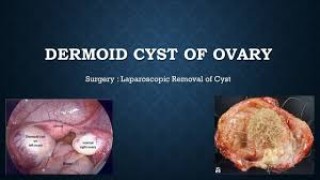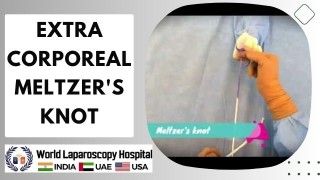Exploring the Benefits and Risks: A Discussion on Laparoscopic Hysterectomy
Add to
Share
1,270 views
Report
2 years ago
Description
Laparoscopic hysterectomy is a minimally invasive surgical procedure that involves the removal of a woman's uterus using small incisions in the abdomen. This surgical technique offers several benefits over traditional hysterectomy procedures, including less pain, smaller scars, faster recovery time, and reduced risk of complications. However, like any surgical procedure, there are also potential risks and complications associated with laparoscopic hysterectomy. These may include bleeding, infection, damage to surrounding organs, and difficulty during the surgery. In this discussion on laparoscopic hysterectomy, medical experts will explore the benefits and risks of this surgical technique in detail. They will discuss the factors that may make a patient a good candidate for laparoscopic hysterectomy, as well as alternative treatment options that may be available. The discussion will also cover the different types of laparoscopic hysterectomy procedures, including total laparoscopic hysterectomy and laparoscopic-assisted vaginal hysterectomy, and the potential advantages and disadvantages of each. Whether you are a medical professional interested in the latest advancements in laparoscopic hysterectomy or a patient seeking more information about this surgical option, this discussion will provide valuable insights and expert opinions to help you make informed decisions about your health and wellbeing. Furthermore, the discussion will address the importance of proper pre-operative preparation and post-operative care to ensure optimal surgical outcomes and patient recovery. The medical experts will also share their experiences and insights on best practices for minimizing potential complications during laparoscopic hysterectomy procedures. Attendees of the discussion will have the opportunity to ask questions and engage with the panel of experts, gaining a deeper understanding of laparoscopic hysterectomy and its role in gynecological surgery. Overall, this discussion on laparoscopic hysterectomy offers a valuable platform for medical professionals and patients alike to learn more about this minimally invasive surgical technique, its benefits and risks, and its potential impact on the future of gynecological surgery. Laparoscopic hysterectomy is a minimally invasive surgical procedure that has gained popularity over the years due to its numerous benefits over traditional open surgery. These benefits include smaller incisions, less pain, reduced scarring, and faster recovery times. However, like any surgical procedure, laparoscopic hysterectomy also carries certain risks and potential complications that must be carefully considered before proceeding with the surgery. To provide medical professionals and patients with a comprehensive understanding of laparoscopic hysterectomy, a discussion has been organized that will explore the benefits and risks associated with this technique. The discussion will bring together a panel of experienced medical professionals who will share their knowledge and expertise on this topic. The panelists will delve into various aspects of laparoscopic hysterectomy, including its indications, patient selection, surgical techniques, and potential complications. They will also discuss the different approaches to laparoscopic hysterectomy, such as total laparoscopic hysterectomy (TLH) and laparoscopic-assisted vaginal hysterectomy (LAVH), and the factors that influence the choice of approach. Furthermore, the discussion will address the importance of proper pre-operative preparation and post-operative care to ensure optimal surgical outcomes and patient recovery. The medical experts will also share their experiences and insights on best practices for minimizing potential complications during laparoscopic hysterectomy procedures. Attendees of the discussion will have the opportunity to ask questions and engage with the panel of experts, gaining a deeper understanding of laparoscopic hysterectomy and its role in gynecological surgery. They will also gain insights on the latest advances in this field and how they can improve patient outcomes. Overall, this discussion on laparoscopic hysterectomy offers a valuable platform for medical professionals and patients alike to learn more about this minimally invasive surgical technique, its benefits and risks, and its potential impact on the future of gynecological surgery.
Similar Videos






